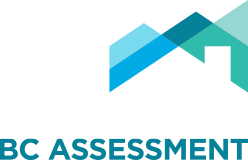Horse rearing as a qualifying agricultural use
Rearing horses for sale is considered a qualifying agricultural use (as a subset of livestock raising) and may qualify land for farm class. Land used for training and boarding horses may also be eligible for farm class if that land is part of a horse breeding and raising operation but only income from the sale of horses is qualifying income for farm assessment purposes. A sale includes the amount claimed in a claiming race.
Effective for the 2013 tax year, land used for the provision of horse stud services as part of a horse rearing operation may also qualify for farm class. Income from horse stud services is qualifying income if the horse stud services are offered as part of a horse rearing operation.
Income from boarding, training, rental, showing, racing and breeder's bonuses is not qualifying income for farm class purposes.
Land used for equestrian centres, horse boarding, training or rental facilities will not be eligible for farm classification unless they are operated in conjunction with rearing horses for sale, and the horse rearing operation meets minimum income and sales requirements. Related non-farm activities such as restaurants, snack bars and lounges are classified as business and other.
What is required for a farm operation to qualify for farm classification?
• Horses must be raised on the land during each reporting period.
• A horse must be sold from the land in at least one of the two reporting periods; some qualifying agricultural product must be sold during the other reporting period.
• The minimum income requirements must be met in at least one of the two reporting periods.
Receipts for purchase (applicable only where horses are not born on the farm) and sale must be made available to the assessor upon request.
The farm must meet its income requirement based on the sales prices (less any purchase costs) of horses reared on the farm. Income from horse rearing is calculated in the following way:
• if a horse was purchased for $1,000, trained and sold for $4,000 two years later, the income would be $4,000 - $1,000 = $3,000 in the year of sale.
• if a foal was born on the property and sold two years later for $4,000, the income would be $4,000 in the year of sale.
Income from horse stud services provided as part of a horse rearing operation will also count toward the income requirements. We do not take into account unrealized value for horses.
A horse rearing operation must sell at least one horse every other year, and some qualifying agricultural product in the alternating year to continue to qualify for farm classification.
When is the application required?
For any new land to be classified as farm for the next taxation year, the owner must submit a
General Application for Farm Classification to the owner’s BC Assessment area office by October 31. Application forms are also available at your BC Assessment area office.
Applicants are encouraged to submit their farm applications to the BC Assessment area office as soon as possible. Early application will assist in providing BC Assessment staff time to inspect and review the farm operation.
Property already classified as farm land must continue to meet the requirements for farm class on or before October 31 to receive farm classification for the following year. BC Assessment may require you to provide additional information in support of continued farm classification.
Disclaimer: Where information presented is different from legislation, legislation shall prevail.

